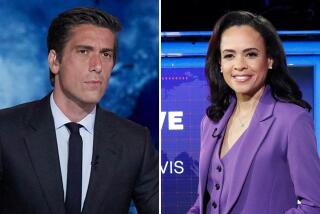Commission Plays It Straight, Steers Clear of Politicking
- Share via
The nonpartisan Commission on Presidential Debates was established in 1987 to avoid the kind of wrangling now underway between Republican George W. Bush and Democrat Al Gore.
The commission was formed after two national studies urged creation of an organization dedicated solely to sponsoring presidential and vice presidential debates in the fall campaign. The idea was to keep the details out of the hands of the respective nominees and--to the extent possible--away from the realm of politics.
The commission, which is a nonprofit, nonpartisan corporation funded by private contributions, sponsored all the general election debates in 1988, 1992 and 1996. This year’s proposed debate schedule, format and locations were announced in January, well before either Bush or Gore secured their party nominations.
The commission’s two co-chairman are Paul G. Kirk Jr., a former chairman of the Democratic National Committee, and Frank J. Fahrenkopf Jr., a past chairman of the Republican National Committee.
The commission’s nine-member board includes prominent Democrats--among them Caroline Kennedy--as well as Republicans, including former Missouri Sen. John Danforth and Rep. Jennifer Dunn of Washington. Former Presidents Ford, Carter and Reagan serve as honorary co-chairmen.
The commission has largely avoided controversy, save for the protests of some minor-party candidates who consider it exclusionary. The commission has required that debate participants have their names on enough state ballots to offer at least a mathematical possibility of securing an Electoral College majority and, more stringently, that they enjoy at least 15% support as determined by five selected national opinion polls.
More to Read
Get the L.A. Times Politics newsletter
Deeply reported insights into legislation, politics and policy from Sacramento, Washington and beyond. In your inbox twice per week.
You may occasionally receive promotional content from the Los Angeles Times.










